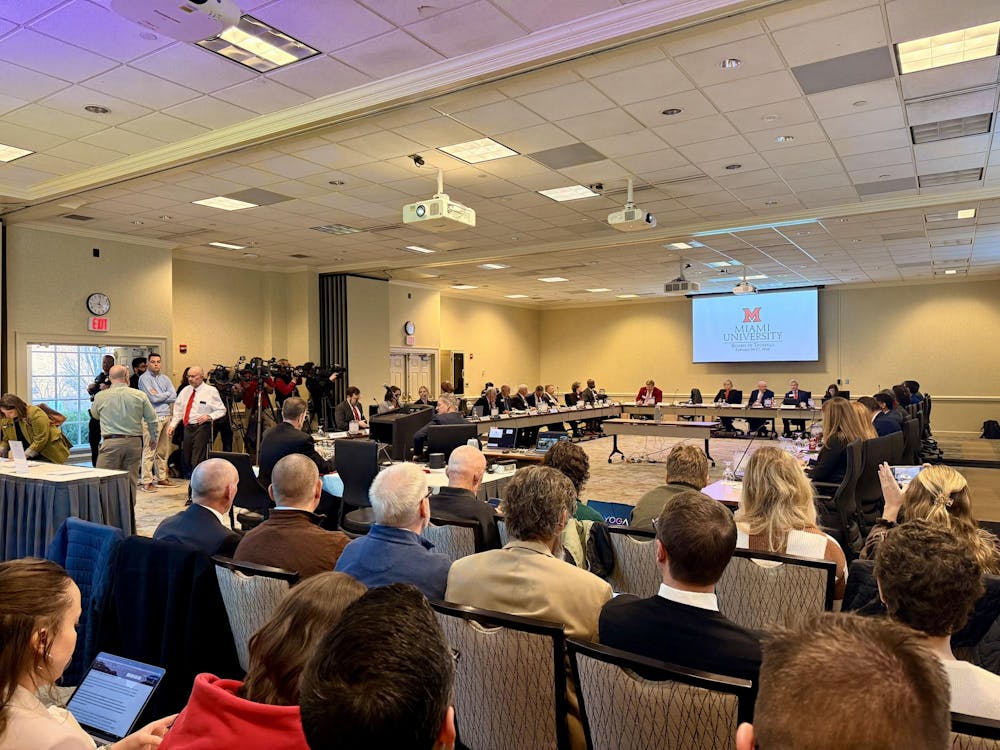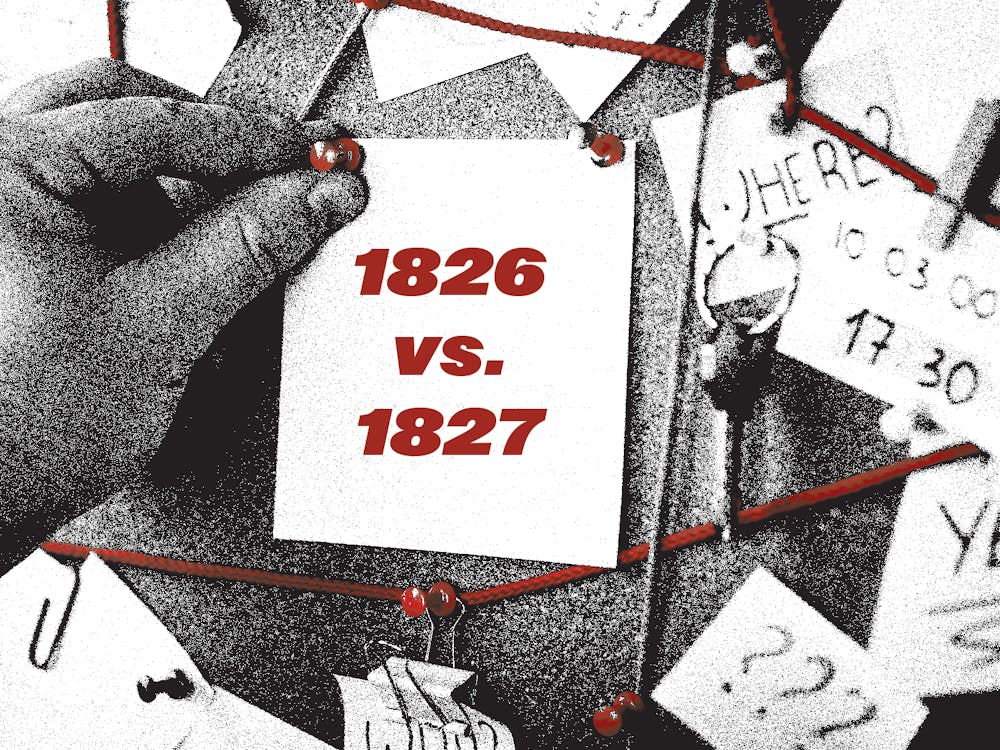During the spring of 2025, Miami University started giving out “Graduation Celebration in a Box” merchandise to admitted students in the class of 2029.
Ella Nutter, an incoming first-year intending to major in speech pathology and audiology, said after confirming her place at Miami, she received one of the “Celebrations in a Box.”
The admissions department sent the boxes to confirmed fall 2025 students with domestic addresses. Nutter said the box contained a Miami pendant, red and white paper decorations, a “Proud Parent” magnet, postcards, a notepad and under-eye stickers for future sports games.
Bethany Perkins, director of admissions at Miami, said these boxes were sent to allow incoming students to show Miami “flair” at graduation parties.
In the past, students would receive stickers, yard signs and Miami pendants.
Perkins said the admissions department also sent out merch boxes for engaging with Miami on social media, with the stipulation that they would need to post about it.
Enjoy what you're reading?
Signup for our newsletter
Perkins added that for the twenty students who received a box, there were 20 to 50 calls from parents and students asking about the boxes and if they would receive one.
“Well, actually you didn’t do what we encouraged you to do,” Perkins said was her response to the families. “It was all about rewarding wonderful social media behavior.”
The incoming class of 2029 is currently preparing to start their next four years at Miami. With them come financial and class size changes that could affect future applicants.
Perkins said this year, the university decided to accept a smaller class size compared to past admission cycles.
According to the Office of Institutional research and effectiveness, in 2024, 29,787 first-year students were admitted and 4,192 enrolled compared to 2023, where 28,319 first year students were admitted and 3,937 were enrolled.
“Last year, we enrolled a slightly larger class than we needed to,” Perkins said. “Partly because we did not know entirely what to expect due to FAFSA delays.”
Perkins said she anticipates the class size will continue to drop, mainly because of the upcoming demographic cliff or smaller class sizes graduating from high school because of a falling birth rate starting in 2007. The result will be a decline in enrollment and fewer students graduating from colleges.
Perkins said merit scholarships are also anticipated to be slightly lower or close to the range of last year’s because of the smaller class size. She added that merit scholarships at Miami are based on a student's weighted high school GPA and residency to determine how much money they will receive.
According to Miami’s admission and aid department, 93% of first-year students received gift aid from Miami. The department reported the average merit scholarship received by an in-state student as $7,144, in comparison to an out-of-state student, which is $16,805. The average number for the class of 2025 will be determined two weeks into the fall term.
David Creamer, Miami’s senior vice president for finance and business services and treasurer, said when it comes to scholarships for incoming students, his administration must consider rising costs of compensation and inflation that affect higher education.
He said it must also try to make education affordable for all students who want to attend Miami.
“It's a complex set of trade-offs that we tend to make each year,” Creamer said, “looking at exactly what we'll be able to try to achieve with as much affordability for our students as possible.”
Nutter said the merit scholarship she received made her decision to accept Miami easier.
“Ever since I visited Miami, I kind of had my heart set,” Nutter said. “I wasn't sure how much Miami was going to give me because tuition is expensive.”
Creamer said financially, the admissions merch box decisions are allocated from the admissions department budget for recruitment of the upcoming class and do not affect scholarship amounts. He said that he hopes students know that the university tries to come up with ideas that are fair to all students.
“It's constantly evolving because we're competing against other institutions,” Creamer said. “We look at what are the best types of strategies that put forward the benefits and value of Miami.”




